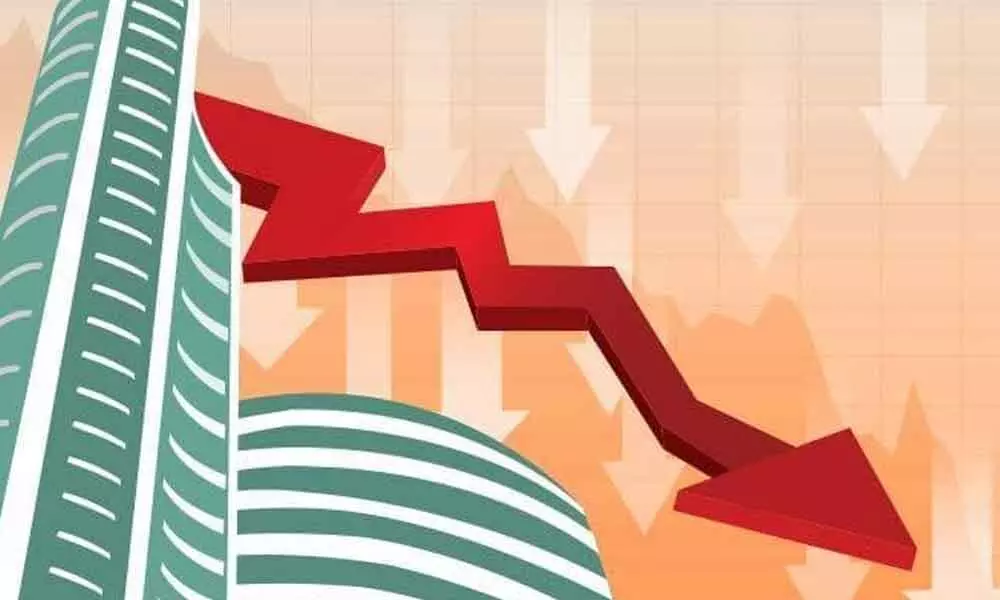Stock markets in uncertain territory

On Monday, India’s stock markets suffered the worst fall in their history.
On Monday, India's stock markets suffered the worst fall in their history. Benchmark BSE Sensex plunged 1,942 points, or five per cent, to close at 37,577 points, thereby eroding Rs 6.84 lakh crore of investors' wealth. On the points' scale, it was the biggest fall thus far.
In a similar vein, the NSE Nifty shed 538 points, or 4.9 per cent, to end at 10,451 points. Interestingly, top three steepest falls in the country's stock market history, were recorded in the last four years.
The previous highest was on August 25, 2015, when Sensex shed 1,625 points on China's economic woes. The third highest fall of 1,448 points happened 10 days back on February 28 this year and it was caused by fears of novel coronavirus fever which originated in China and is now engulfing the world from all sides.
The latest stock market carnage in India also has links to the deadly virus as Indian bourses joined global sell-off driven by the virus concerns. Steep fall in crude oil prices following price war between Saudi Arabia, the world's 2nd largest oil producer, and Russia, the third largest oil producer, also fuelled carnage on stock markets around the world.
From Europe to the US, global markets plunged to new lows on Monday amid rising coronavirus cases and falling crude prices. The sell-off was so severe in the US that stock exchanges had to be closed for 15 minutes to halt the downward spiral. Strangely, Indian markets are showing irrational straits these days.
For instance, after Sensex fell 1,448 points on February 28 this year, it recouped most of the fall in the following few days. Thereafter, it registered highest fall of 1,942 points 10 days later, on Monday. It is to be seen whether Indian markets will bounce back on Wednesday when they reopen for trading after Holi holiday. But one thing is certain.
Uncertainty has been haunting India's stock markets since February 1 when Finance Minister Nirmala Sitharaman presented her first full Union Budget. Since then, the BSE Sensex lost a whopping 5,088 points (12.4 per cent) and Nifty, 1,511 (12.6 per cent). That's a huge drop.
Apart from global factors like coronavirus, local issues like crisis in Yes Bank also compounded woes of the stock markets here. Further, GDP growth in third quarter of current fiscal, at 4.7 per cent, also dampened market sentiment on Dalal Street.
Intriguingly, fall in crude oil prices also left an adverse impact on Indian markets despite that fact that India would stand to gain from lower oil prices as its oil import bill would come down considerably.
This shows the kind of extreme volatility the markets are currently going through. So, it will take a while before markets calm down as issues like COVID-19 are beyond the control of the Indian government.
However, the Modi government will have to step in and initiate measures to pull markets out of prolonged uncertainty. A clear and credible roadmap for higher GDP growth could infuse confidence into investors. Otherwise, volatility in Indian markets will continue even if coronavirus threat recedes.








